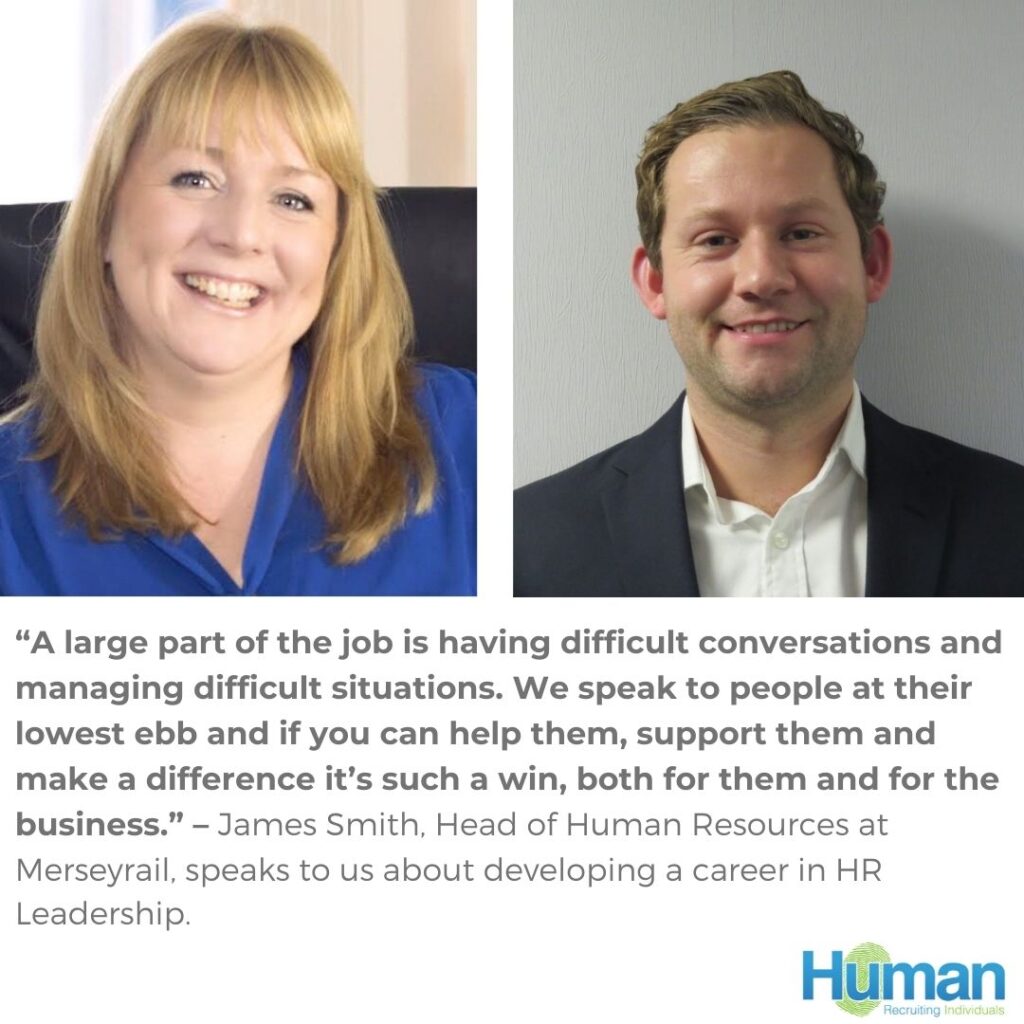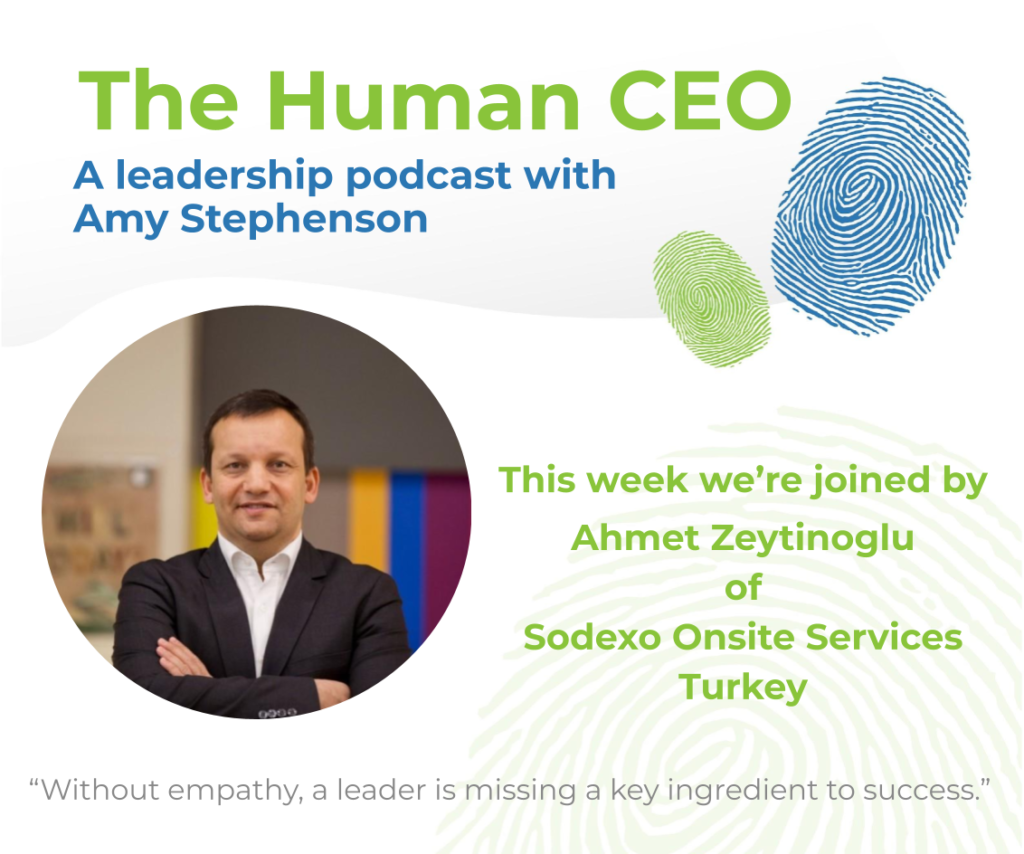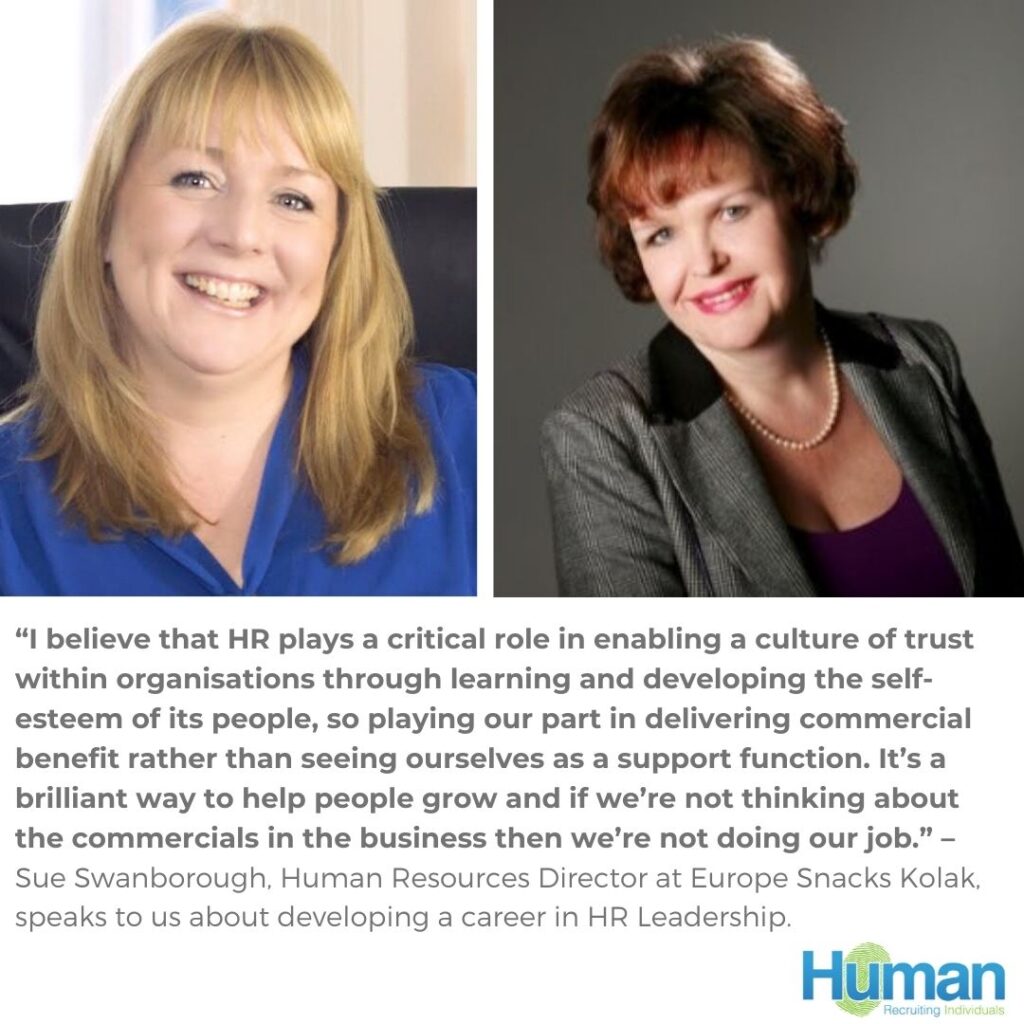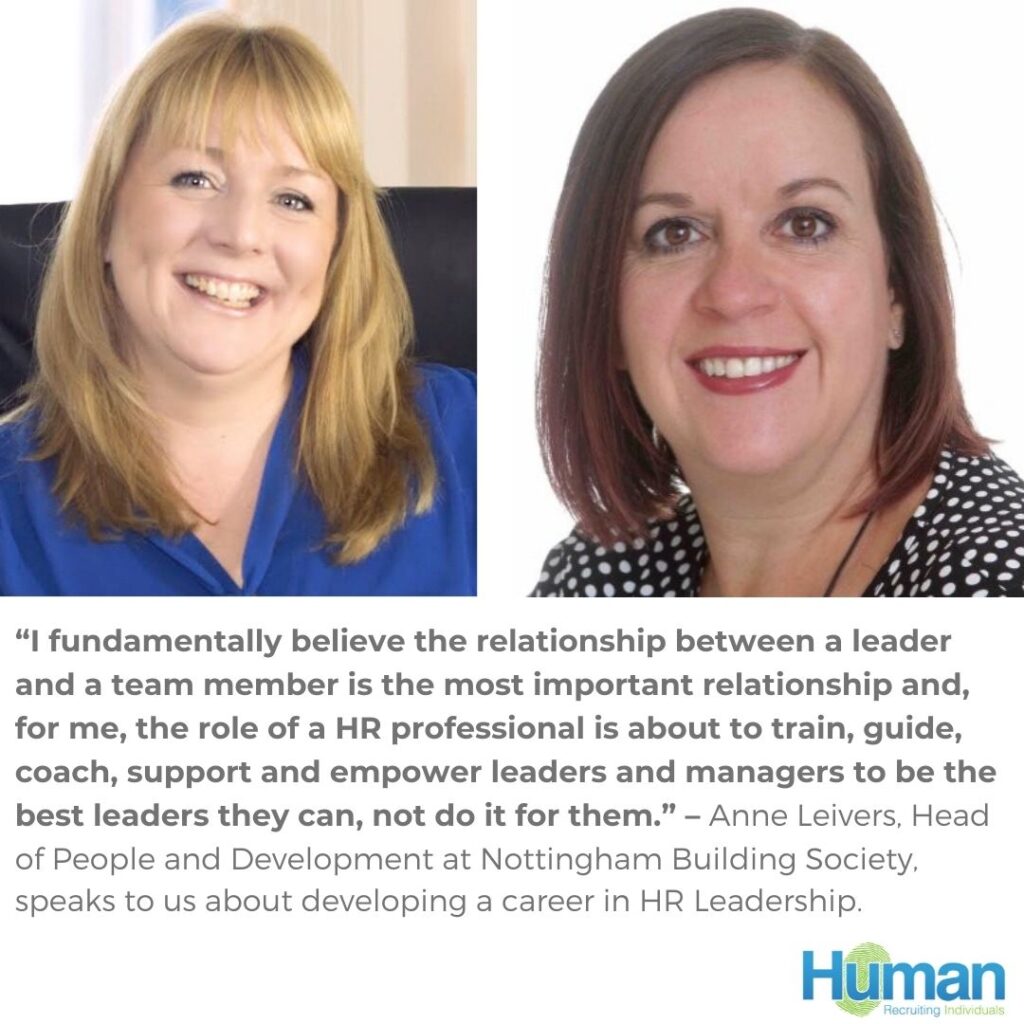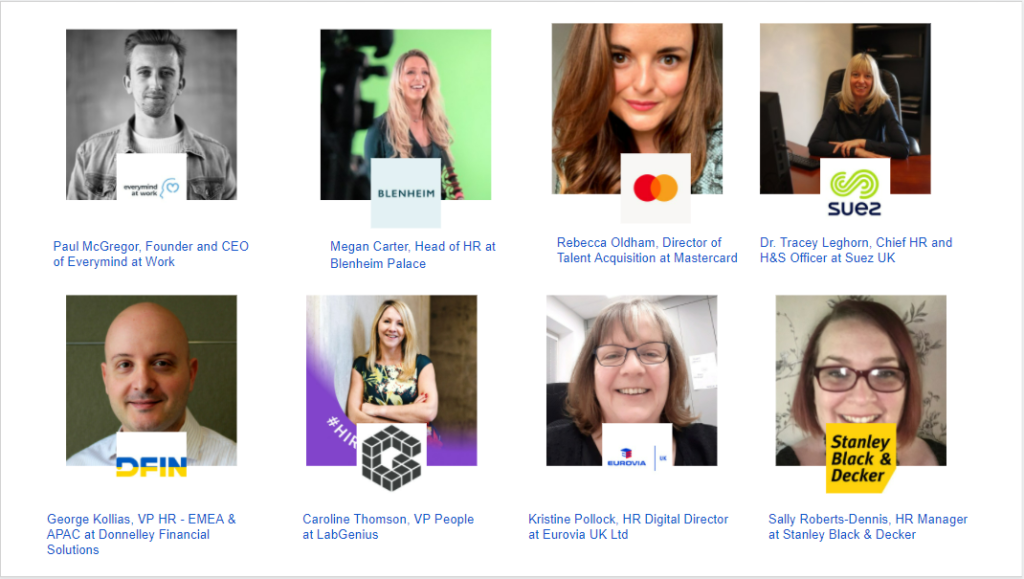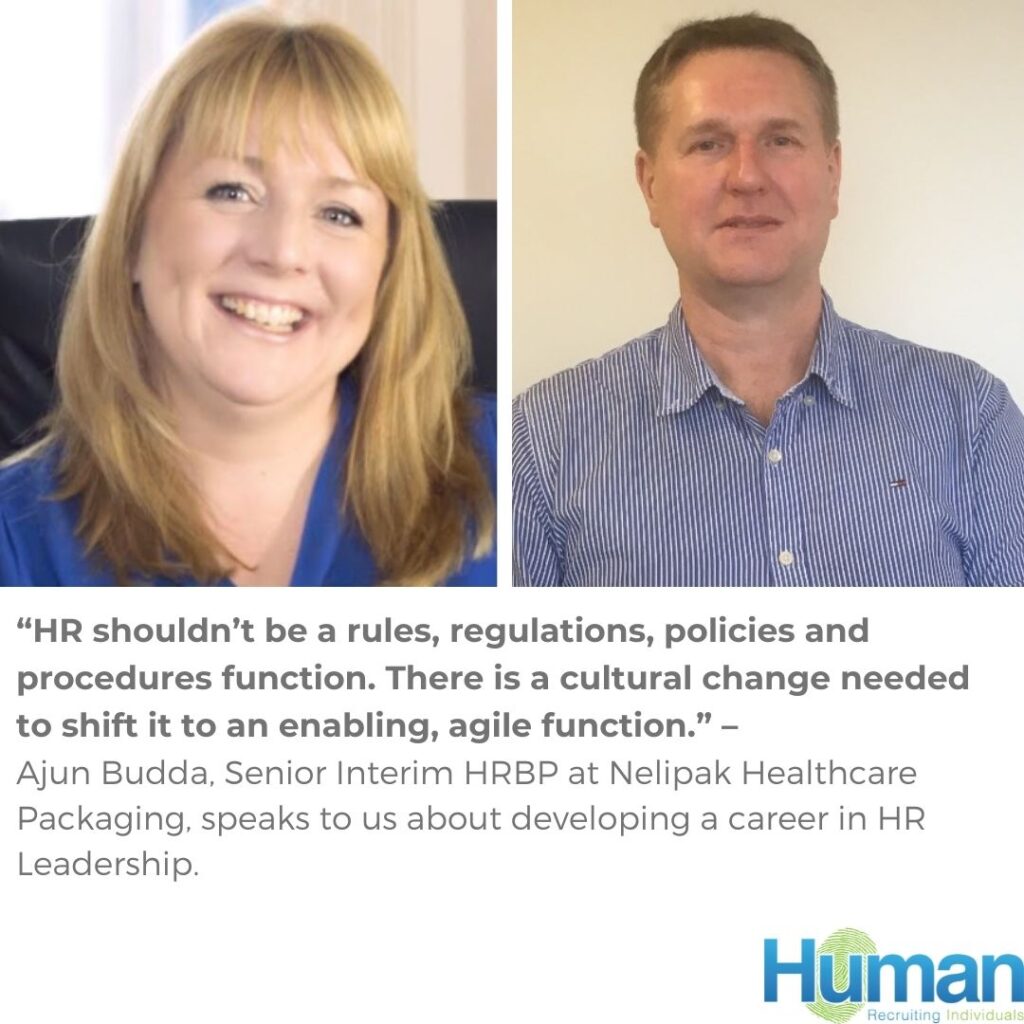‘If you’re early in your career, take the opportunities that come to you.’ – Interview with James Smith
“A large part of the job is having difficult conversations and managing difficult situations. We speak to people at their lowest ebb and if you can help them, support them and make a difference it’s such a win, both for them and for the business.” – James Smith, Head of Human Resources at Merseyrail, speaks to us about developing a career in HR Leadership. As part of our commitment to supporting candidates to develop fulfilling careers, we’ve invited some HR Leaders to share the secrets of their success. This week, we had a great conversation with James Smith, who began his HR career straight out of university on a graduate scheme with Veolia, later taking up the role of HR Advisor at the company. In 2015, James joined Network Rail as a HR Business Partner where he spent two and a half years before moving to High Speed Two (HS2) Ltd. In 2018, James returned to Network Rail as a Senior HR Business Partner based in Manchester. He took on his current role as Head of Human Resources for Merseyrail in January 2020. Can you tell us how you got into HR and why? At university I studied a generalist business management degree. In our final year you could specialise in a particular area and I picked HR as it had such a broad range of potential opportunities. My dad’s friend was a HR Director who told me you can make a great career out of it – it was that simple really. After graduating I was lucky enough to join a graduate scheme at Veolia which involved various rotations over a two year period. I was able to apply my learning from university but also learn on the job as well which was great because until you apply the theory in real-life situations you can’t really grasp it. The Sheffield division of the company was going through a big restructure at the time and I was doing major elements of that. It was a complex restructure that involved negotiations with trade unions, management and potential redundancies – you can’t learn that through theory alone. That exposure at such an early point in my career was key in building some of the knowledge and expertise that I’ve got now. After I completed the graduate scheme at Veolia I was offered a permanent role as a HR Advisor. I enjoyed the wide range of responsibility, the travel, the variety of contracts I was looking after and the small but growing influence my role had and I knew that HR really was for me. I visited the sites for my oil and gas clients and was able to see some of the front line operations, it was so interesting. Since leaving Veolia I’ve worked for some great organisations and been involved with national level projects at Network Rail. That was a really interesting experience as it’s a huge and complex organisation. I personally feel very lucky in my career. I’ve been guided by some great people, had some great opportunities and have progressed to a Head of HR position in a fairly short space of time. HR can be a challenge, there are days when you pull your hair out and think, “is this fun anymore?” But actually the rewards and what we get out of it far outweigh the negative side. A large part of the job is having difficult conversations and managing difficult situations. Sometimes we speak to people at their lowest ebb and if you can help them, support them and make a difference it’s such a win, both for them and for the business. Can you tell me about the key themes and challenges that you’re seeing across the HR sector? COVID has been a huge challenge. After I joined Merseyrail in January 2020 there was probably only one month where COVID wasn’t the main topic of conversation and that month was spent getting to know the business and looking at what we needed to do as an organisation, before the world completely changed.. Despite the pandemic, we’ve still been able to give great train performance and continue to receive positive customer feedback despite the obvious challenges. During the pandemic, the challenge was trying to continue to run services for key workers but also to protect our workers as well. We introduced a new business strategy during the pandemic to help the business recover that had three simple yet powerful strands: reduce costs, increase customer confidence and maximise revenue. We also have the challenge of launching our new fleet of trains shortly. Our current units are 40+ years old so once we have these it will transform travel for the Liverpool city region. They’re quicker, modern,more spacious and will give us the opportunity to expand the network. My current challenge is the delivery of a post COVID-19business strategy and designing the people element of it. One of its elements very much focuses on health and wellbeing and how we support our people in a post COVID world because there are so many different factors now. Like a lot of the rail industry, we have an ageing workforce and with all of the NHS resources diverted to fighting the virus, other health elements have started to compound. Illnesses people would normally be able to get treatment for have been postponed or were inaccessible. The industry has had large amounts of absence either through COVID-19 isolations or issues that have manifested following shielding or quarantining.It’s really affected people’s physical and mental wellbeing and there’s a lot of long-term work that we need to do to support people going forward. That’s one of the main challenges, how do we support our people when we’re not healthcare professionals? At Merseyrail we’ve got lots of fantastic support mechanisms in place. We have a fantastic physio service, occupational health providers, a counsellor, psychologist, mental health first-aiders, virtual GPs and good healthcare benefits.. The amount of support in our business for our staff I

